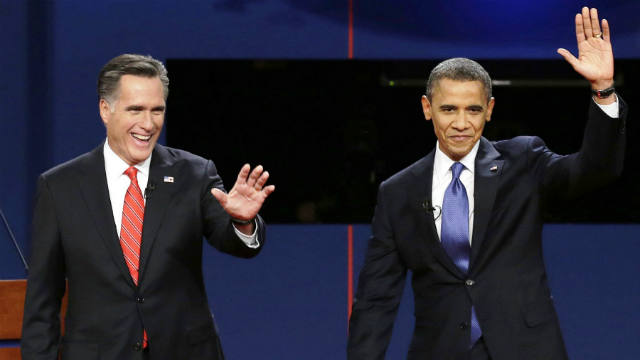
Still undecided about who to vote for in November? Monday night’s debate might just be the tiebreaker you need.
As President Barack Obama and Republican nominee Mitt Romney head into the debate the latest NBC News/Wall Street Journal poll show the contenders running neck-and-neck in a race that may remain too close to call clear until the polls close on Nov. 6.
1. They’re in a Dead Heat
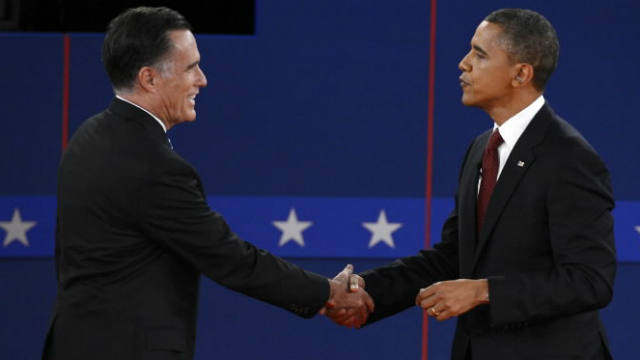
Both candidates are at 47 percent among likely voters in the latest poll, NBC News reported today. The poll was conducted entirely following the second presidential debate, held last Monday, a battle that grew heated as a newly animated Obama took the stage to do battle against Romney.
2. The Debates Made a Difference
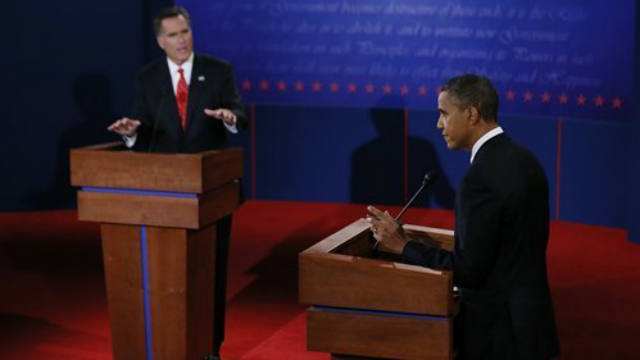
In the previous NBC/WSJ poll, done before the debates began, Obama held a three-point lead of 49 to 46 percent over Romney. He does remain ahead of Romney by five points, 49 percent to 46 percent, in a wider pool of all registered voters.
“We definitely have a barn burner,” said Republican pollster Bill McInturff, who conducted this survey with Democratic pollster Peter D. Hart, who added, “the election is close, close, close.”
3. People Are Starting to Appreciate Romney
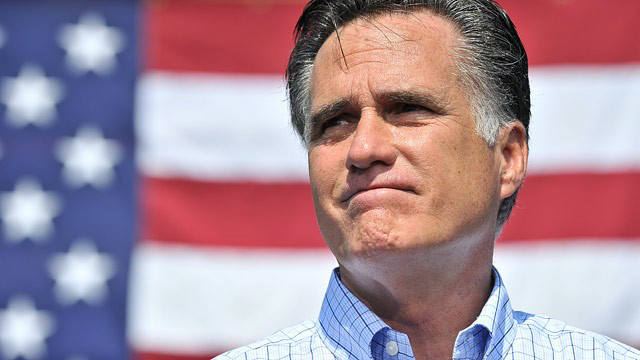
Romney’s main problem, when the race first started, is that many people outside the Republican Party just didn’t know who he was or what he stood for. The two debates have given the public a clearer picture of the one-time Massachusetts governor’s platform, and now 47 percent of registered voters are optimistic that he’d be a good president. That’s up five points since the last NBC/WSJ poll, a solid climb, while Obama’s numbers still stand at 50 percent.
4. Monday’s Debate on Foreign Policy May Tip the Scales for Romney
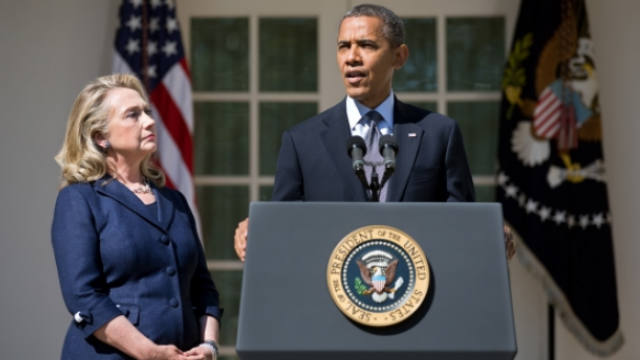
Heading into Monday’s debate, Romney is just three points behind Obama on which person would be a better commander-in-chief. Obama had an eight-point edge just a month ago, but the ongoing debate over the Benghazi terror attack on Sept. 11 had harmed the president’s reputation on foreign policy – and Romney has been aggressive in pushing Obama on the issue. Expect Monday’s night to get very contentious over the Benghazi issue.
5. Voters Feeling Optimistic on the Economy
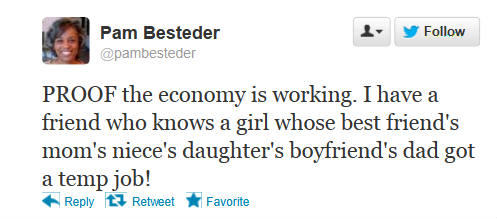
Despite the dire predictions tossed around in the debates, the poll said voters are more optimistic about the economy. Forty-five percent think things will improve in the next year, and 41 percent think the country is headed in the right direction, the highest mark since 2009.
6. Obama’s Overall Approval Ratings Stay the Same
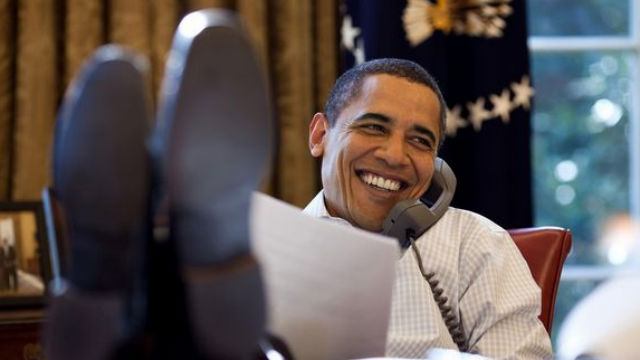
The public’s changing opinions may work in Obama’s favor, because his approval ratings are remain the same. Forty-nine percent approve of his overall job performance and 46 percent approve of how he handles the economy. Another 49 percent approve of how he handles foreign policy. Those are all very high numbers for an incumbent president who is seeking re-election.
7. Romney’s Business Background is Paying Off
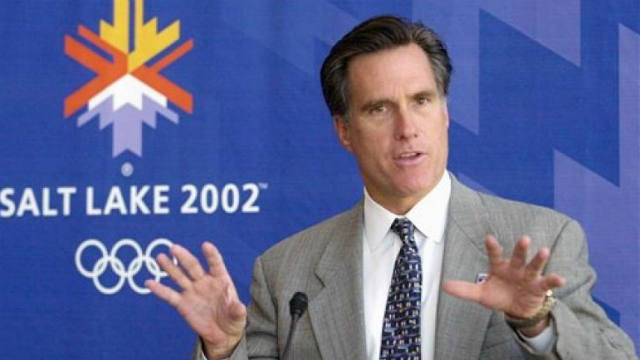
Voters are optimistic on the economy and Obama’s role in handling it, but they overwhelmingly think Romney can do a better job dealing with the economy. The GOP candidate holds a six-point lead, 46 to 40 percent, over Obama on who would deal better with the economy, marking a three point jump since the last poll.
Romney also topped the poll for jobs and unemployment, by 46 percent to 39 percent, and on the federal budget deficit, 48 percent to 35 percent. And voters think Romney will be better prepared to create jobs and improve the economy over the next four years. Between running Bain and the 2002 Salt Lake City Winter Olympics, Romney definitely has tons of corporate experience.
8. Obama Leads on Issue and Character-Trait Questions
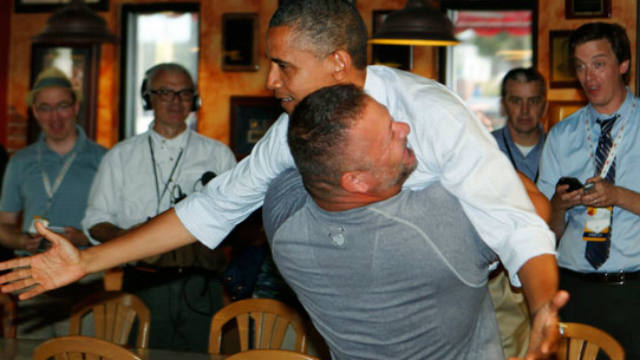
Voters flat-out think Obama’s a likeable guy. They overwhemingly, by a 57 percent to 25 percent margin, said he’s more easy-going and likable. Further, voters by a 53 percent to 25 percent margin, said he deals with women’s issues better; said he’s compassionate for average people, by a 53 percent to 29 percent choice; looking out for the middle class, by a 52 percent to 36 percent margin, and dealing with Medicare, 46 percent to 37 percent.
9. Different People Like Them Differently
Obama leads among African-Americans by a 92 to 5 percent margin; Latinos by a 7-10 choice; women by 52 percent to 41 percent and young voters ages 18-34, by a 61 to 33 percent margin.
Romney has the edge with seniors, by a 60 percent to 35 percent vote; whites by a 55 percent to 38 percent margin and men, by 47 to 45 percent.
10. Election May Come Down to Just a Few Counties in a Few States
The nine most contested states are Colorado, Florida, Iowa, Nevada, New Hampshire, North Carolina, Ohio, Virginia and Wisconsin. However, according to the Associated Press, the outcome probably will depend on what happens in the 106 counties that Republican George W. Bush won in 2004 and that voted for Obama in 2008.
The closeness of the polls, plus the importance of the swing states, means that this year more than ever, every vote will count.